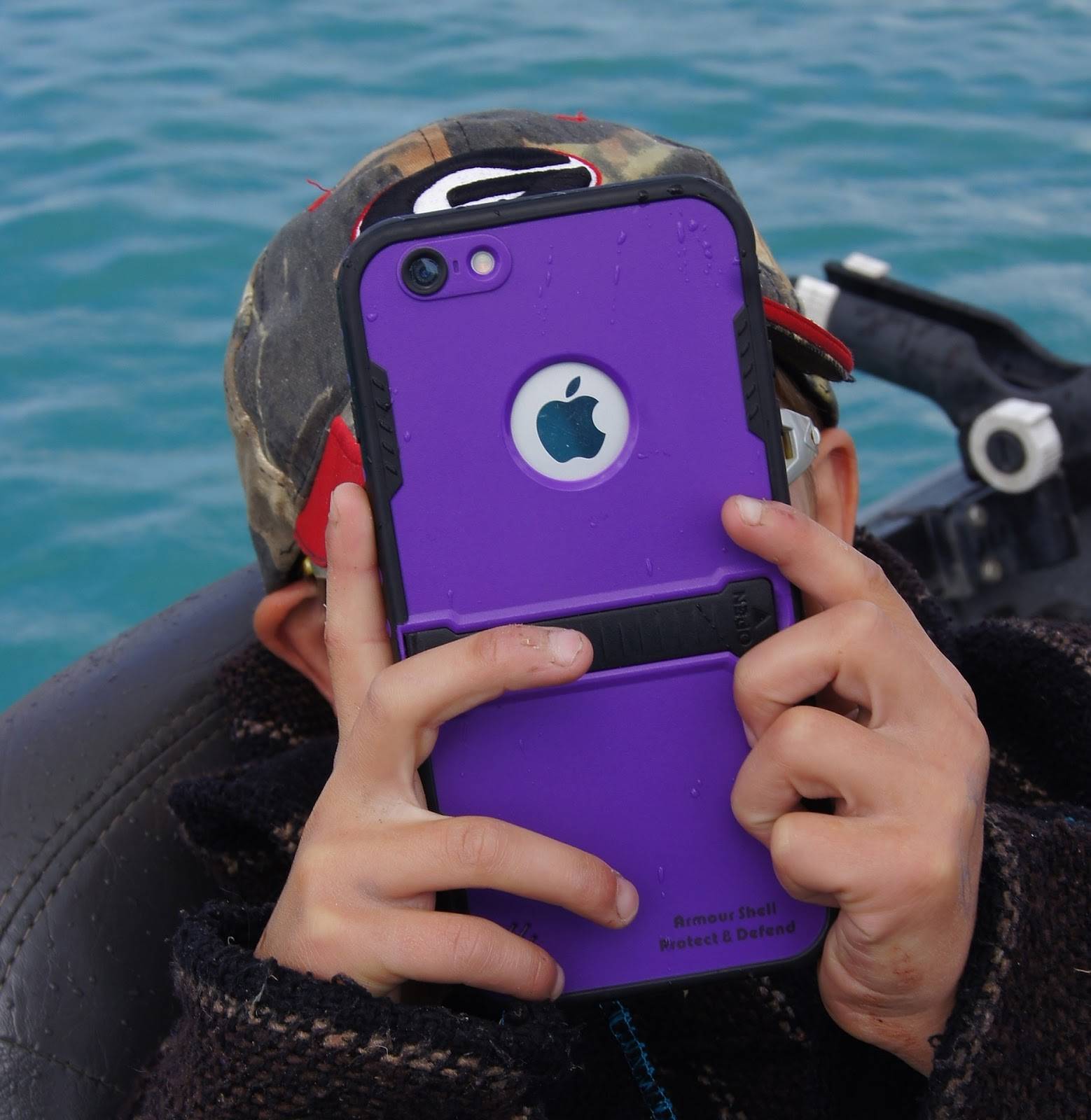You may have never heard of SnapChat, but if you have teenagers in your household, then you can bet they have.You may have already spotted the app on their phone.Why is it appealing?It allows you to send photos and videos with an “expiration date.”The content doesn’t linger on your phone or your recipient’s phone indefinitely as with most social media, and it’s a fun way to share what’s going on in your life at this exact moment.Yet the nature of the application can create a false sense of security, and users need to be aware that there are ways the application can be misused.Here’s what you need to know.
SnapChat is an application available for iOS and Android device users.Signup requires the entry of a username, password, email address and birthdate.The minimum age requirementis 13 years old.Kids younger than this are allowed to use the application (called SnapKidz), to create images and art with the drawing software and save it to their device, but they can’t send anything they create through the application.After you create your account, SnapChat will access your contacts list and populate your address book with a list of people who are already using the app.
Once you’ve got the application set up on your phone, the sharing begins.Take a snapshot of the monster burger you’re about to consume or the silly face your friend just made.The editing icon within the software allows you to caption the photo or draw pictures on it before you send.If you’ve always wanted to add a “bubble thought”to your boyfriend’s goofy look, this is the perfect opportunity.Once you’ve got your masterpiece created, you choose the length of time to allow the photo to be viewed by the recipient – anywhere between one and ten seconds – and then send.When the recipient views the image, it automatically disappears after the amount of time you’ve specified.
A false sense of security can come from believing the images just disappear after the timeframe you’ve set. SnapChat has a feature that is supposed to notify you if someone takes a screenshot of the image you sent them, but it’s not always reliable, and users should be aware that screenshots are still possible. Also, it’s possible for someone to take a picture of the image with a secondary camera or smartphone. There are even applications available to download and run concurrently with SnapChat that will allow a more permanent image to be captured and stored, circumventing SnapChat’s security measures. This would mean that the image you sent could be shared with unintended recipients, and in a much more permanent fashion. Users need to be aware that they’re not entirely secure, and always use caution with photos they send.
SnapChat recently added the ability to instantly video chat with fellow SnapChat users in your contact list, phone-to-phone.While you’re active in the SnapChat application, say composing a text message to someone, everyone on your friends list can see a little blue icon next to your name, indicating that you’re “online.”With a click of a button, anyone you’re connected with can instantly take over your screen with video chat, without you giving them permission (luckily they can’t see YOU if you don’t reciprocate). Still, the ability for someone to be able to get in your face, so to speak, may be unnerving for some people.There are privacy concerns as well.If their instant video is of something you don’t want to see, or something that isn’t appropriate for your given situation (say, in line at the grocery store…) there’s no way to temporarily block the video feed without closing out of the application.
Since a majority of SnapChat users are under the age of 18, another concern has been “sexting” or the sending of nude or sexually-explicit photographs and videos from one user to another.While research shows that this behavior is relatively rare with kids, it’s still an issue of concern.Users may falsely assume that anything they sent will disappear, encouraging less caution than they may be inclined to use when posting something to Facebook or sending a direct email or text.Any image or video sent electronically, regardless of the medium used, could become public, and parents need to talk with their children about potential consequences.Connect Safely has some useful information on the subject here: http://www.connectsafely.org/tips-to-prevent-teen-sexting/.
There are ways to protect yourself and your teen if abuse occurs.Block individual users if they’re harassing you or sending inappropriate content, or simply delete them from your friends list entirely.Report any abuse to SnapChat via safety@snapchat.com, or contact local authorities if you believe there is an imminent danger.If you suspect a user is under the age of 13, you can report them through support@snapchat.com.Lastly, your child’s SnapChat account can be permanently deleted at http://www.snapchat.com/a/delete_accountif you have the username and password.You can also submit a deletion request to SnapChatusing this form: https://www.snapchat.com/static_files/deletion_request.pdf.
Nerd Chick Adventures is written by Andrea Eldridge and Heather Neal from Nerds on Call, an onsite computer and laptop repair company in Redding.





